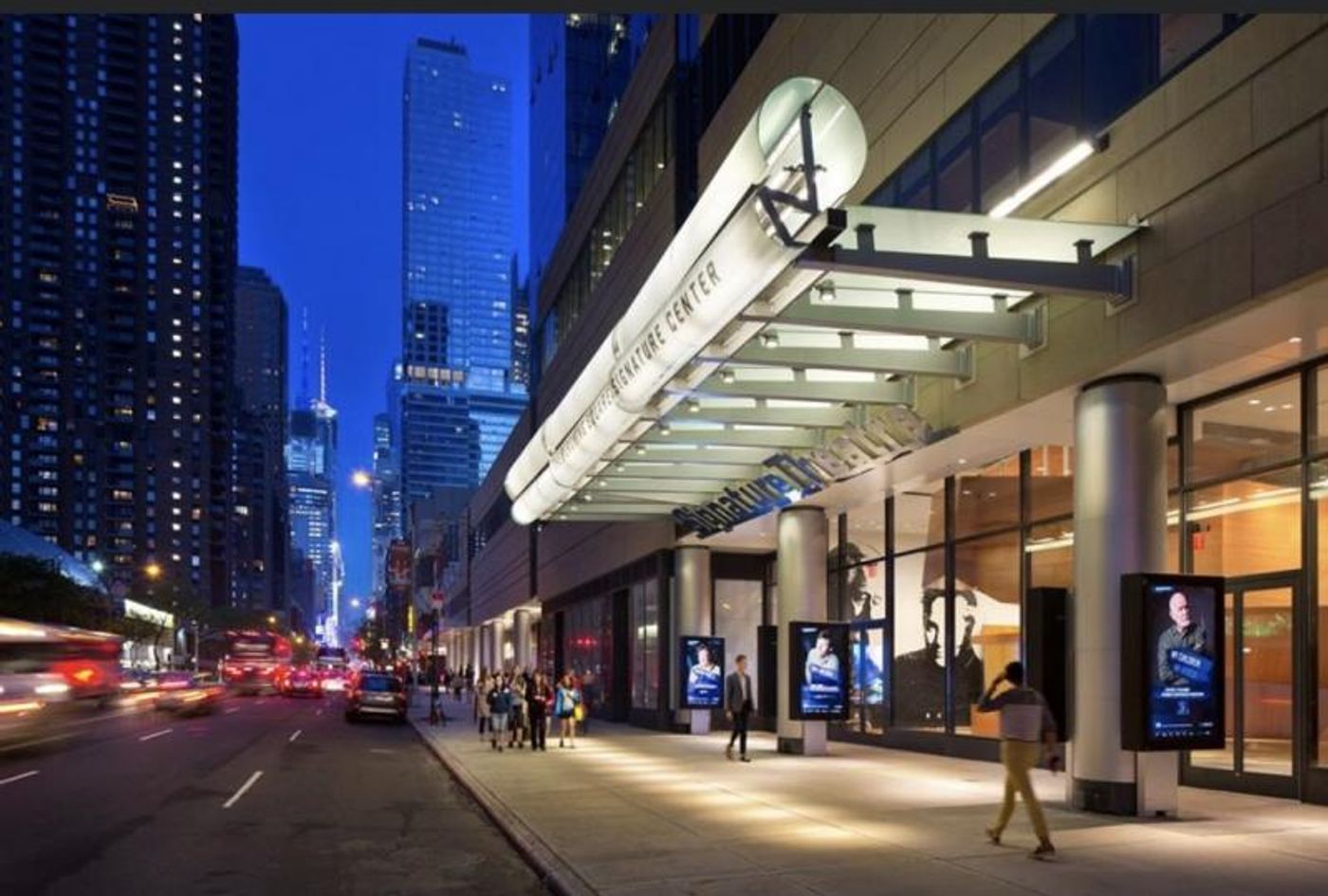Industry Editor Exclusive: How Will Off-Broadway Non-Profits Survive?
This week, I asked representatives from ten theatrical nonprofits in New York to speak with me. Most said yes, but many asked to speak off-the-record because the situation is changing so rapidly they didn't want to be quoted on something that would be incorrect by the time the piece ran. Unlike my usual in the weeds piece, this is purposely a more reflective one.
"Our plan now is to try to figure out what the plan is," said Signature Theatre's Executive Director Harold Wolpert in a Monday interview. Signature operates a lovely theater complex, from which it earns rental income, in addition to producing its own shows. The company had to shutter two of its own productions early and paid the artists associated with each production for the rest of the runs. As a company dedicated to support of playwrights, they have no intention of trying to claw back payments to artists associated with future productions, but everything else is a question mark.
"We're doing scenario planning," he said. "What is the plan if we're down for 2-3 months? 3 to 6 months? Are we going to be totally shut down for that time? Are we going to limp on in a hybrid model [with limited capacity]? There are medium cases or worst cases, there is no best case scenario. We're just trying to figure out what is the path where we can protect our mission and keep our doors open."

This pandemic is obviously hitting all industries. The theater in particular is made by a community -- a community of not just artists, but audience members. All the streaming efforts are great, but they don't change that fact. And, on a personal note, being in the theater has meant so much to me over the years. When I've experienced loss, when I've been stressed, I went to the theater. Broadway gets the tourists -- and much of my love most of the time -- but the off-Broadway nonprofits are really the lifeblood of the overall community. The good news for them is they have endowments, some loyal subscribers/members and are less dependent on tourists. The bad news is, they have overhead.
Like commercial productions they are facing loss of ticket sales right now and the fear that ticket sales will be slow even when theater comes back (for monetary or health reasons). Unlike commercial productions, they also face the realities that a long term recession will hurt institutional flows of money, as it did during our last one.
The Irish Repertory Theatre founders Ciarán O'Reilly and Charlotte Moore said they would apply for the additional sources of funding that have opened up in light of the crisis, but they are nervous. Without doing any shows, they still have a $100,000 a month running cost. About 60% of their income comes from ticket sales with another 15%-20% coming from their gala, which is currently scheduled for June 8, but may not be able to happen at that time. The Irish Rep. has very loyal members -- please see a show there when it reopens if you haven't, it's a lovely lobby to hang out in and the company always stays very true to its mission -- but they do not have a huge endowment.
"There is definitely room for pacing the floor," said O'Reilly on Tuesday. "Late at night, in the morning and in the afternoon."

The Irish Rep. had to cut short two runs and indefinitely delayed another two productions, one of which, Eugene O'Neill's A TOUCH OF THE POET, had a hefty advance.
Staff called and spoke to each ticket holder about whether s/he wanted a refund, wanted to hold the value of a ticket for another time or wanted to treat the purchase as a donation. Moore said the response was "very generous."
Other theater companies are less reliant on individual ticket sales. Some folks spoken to said only about 30% of their budget is dependent on ticket sales. And some others of course are living with a greater cushion of reserved funds. Some are paying artists involved with upcoming productions two weeks, some four, some not at all.
One executive at a theater company with a Broadway house was less worried than others spoken to: "We've got a reserve and we've got the clout that some places don't. I think we're in trouble, but less so than many others. We're still planning as if we'll have the budget to put on shows. Maybe we'll rent a space if necessary to a [commercial production]."
The theater companies spoken to for this story had not yet furloughed or terminated workers, which is a decision that other companies across the country have already made (with the Children's Theatre Company of Minnesota and others even detailing the extensive cuts in press releases). And they each said it was a last resort, but many are worried that it might come to that if the crisis continues.
"We have about a 50%/50% split in terms of ticket sales," one artistic director told me on Wednesday. "Our next show was our biggest of the season and now I don't know if it will ever happen. I don't want to let go of a team and then have to rebuild it, but I also want to be able to reopen at some point and have the money to do that. We won't have that money in four months if we pay out $190 thousand each month. There is no contingency plan for that."
Moore said that they are very dedicated to their team, who are currently Zoom calling daily and also overseeing production of an online showcase, THE SHOW MUCH GO ONLINE (hashtag #TheShowMustGoOnline), a series of videos featuring Irish Rep. veterans performing their favorite songs, poems and monologues from Irish & Irish American playwrights, poets, and musicians. But, in light of what is going on in the world, she has stopped thinking of the company's next shows.
Depending on your personality, it is either easy or really difficult to think of arts funding right now. There seem to be so many charitable organizations with greater and more immediate needs. I get that. However, when you can, think about supporting our nonprofit theaters. Maybe buy a streaming broadcast -- The Wall Street Journal's Terry Teachout and others have been reviewing them even. Maybe buy a subscription or membership. Or maybe just commit to going to one when you are able.
"We rely on generosity of donors, but they are all going through their own challenges," noted Wolpert, who said only approximately 40% of the company's income came from ticket sales. "Off-Broadway is always struggling. We have to struggle and be scrappy and make sure we're not lost in this moment. We cannot be forgotten. We are an important part of the city."

Videos


